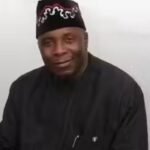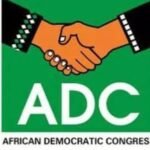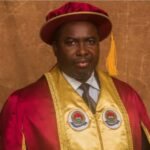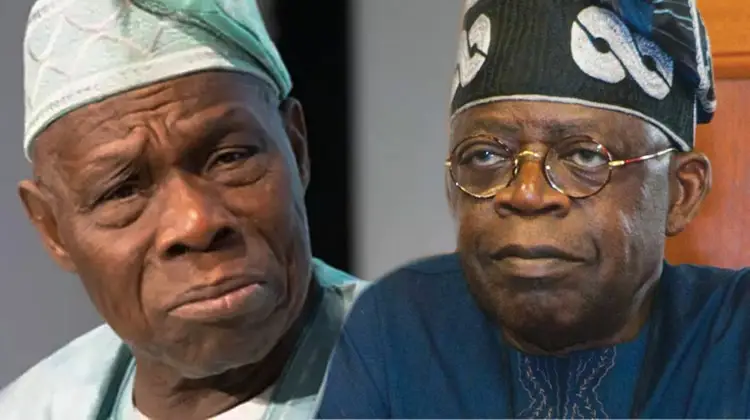By Danladi Ahmed
The Democratic Front (TDF) has critiqued the World Bank assessment of the nation’s economy saying while it agrees with some of their submissions, it, however, vehemently disagrees with attempts to use the President Olusegun Obasanjo’s regime of 2003 to 2007 as benchmark for the validation of the Renewed Hope Economic Agenda of President Bola Ahmed Tinubu.
The Democratic Front (TDF) insists that the two scenarios were completely different and that the World Bank is wrong in its positive assessment of the reforms of former President Olusegun Obasanjo between 2003 and 2007.
In a statement signed by its Chairman, Mallam Danjuma Muhammad and Secretary Wale Adedayo, the group argued that although it agrees with the Bank on the Tinubu reforms, it does not see any basis for comparison with the Obasanjo reforms
It said: “While we hasten to align with the views expressed by the World Bank Vice-President, Indermit Gill, at the Nigeria Economic Summit Group (NESG) which took place in Abuja, on the need for Nigeria to stay the course on the current economic reforms for the next 15 years and avoid the temptation of quick fixes, we boldly express our rejection of his rating of former President Obasanjo’s economic reforms of 2003-2007.
“It is true that former President Obasanjo’s administration built the foreign reserves from $4.99 billion in 1999 to $43.17 billion in 2007, and we acknowledge it as a good development.
“But the impact of that huge reserve to addressing the nation’s myriad socio-economic challenges was intangible and poor, in view of the inability of the government to respond adequately to major economic and infrastructural challenges in the country.
“We believe that the success of any economic reform should be determined by its successful responses to the fundamentals of sustainable growth and development in the economy. This is the notable failure that characterized the Obasanjo reforms between 2003 and 2007.
“We recall that the Obasanjo-era recorded a consistently high sales in crude oil better than the period of under the military governments before it, and the civilian governments that took over from it, as a result of oil boom in the wake of US invasion of Iraq after the September 11 2001 attack on the World Trade Center.
“Despite the boom in oil sales within the period, Nigeria power sector, a key element of sustainable economic growth, was virtually in coma, with over $16 billion dollars expended to generate a little less than 2000 MW of electricity.
“Obasanjo’s agricultural performance was dismally low, as the nation’s food import bill was at a record high, while billions of naira was wasted on a much publicised cassava revolution that yielded little or no value to Nigeria’s agro-economy.
“The period which the World Bank Vice-President spoke so glowingly about, was even more tragic for Nigeria’s oil refining potentials, as state-owned refineries went dead with no significant effort to revive them and encourage private ownership of domestic refineries, like President Bola Ahmed Tinubu has just done, and is still doing.
“As a response to the shortage of Petroleum products in the country, the Obasanjo administration that earned the highest amount of foreign exchange in the Gulf War period, simply expended the same forex in massive importation of Premium Motor Spirit (PMS), through an opaque and corrupt subsidy regime to the neglect and detriment of socio-economic and infrastructural development.
“Not even the Sovereign Wealth Fund, (estimated at N5.5 trillion in 2008 by the state governors), an accomplishment which Mr. Gill of the World Bank mentioned in his tribute to the Obasanjo reform was handy to mitigate the consequences of that monumental waste of fiscal earnings by the government.
“We therefore want to encourage the World Bank to remain supportive of the ongoing economic reforms by the present administration, and desist from making the Obasanjo economic reform of 2003-2007, a benchmark or reference point for the courageous and result-oriented reforms of President Bola Ahmed Tinubu.”
TDF added that the Tinubu reforms are targeted at correcting decades of rot in the economic space and require the support of all Nigerians regardless of the temporary pains.
End.











